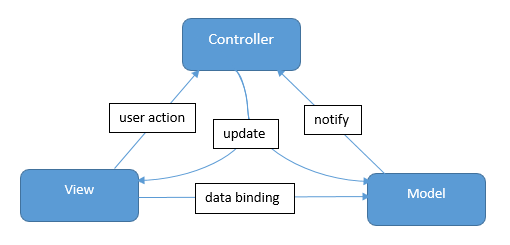Psychology is the scientific study of human behavior and mental processes. It is a fascinating field that encompasses a wide range of topics, from perception and cognition to personality and social behavior. In this blog post, we will explore some of the key concepts and theories in psychology, as well as their practical applications.
What is Psychology?
Psychology is the scientific study of human behavior and mental processes. It seeks to understand how people think, feel, and behave in different situations, and how these processes are influenced by various factors such as genetics, environment, and culture.
Key Concepts in Psychology
Nature vs. Nurture: This concept refers to the debate about whether human behavior and personality are determined by genetic factors (nature) or environmental factors (nurture). This debate has been ongoing for centuries, and it is still a topic of much discussion and research in the field of psychology.
Conscious vs. Unconscious: This concept refers to the idea that much of our behavior and mental processes are driven by unconscious motivations and desires that we may not be aware of. This concept was first introduced by Sigmund Freud, who believed that the unconscious mind played a critical role in shaping our behavior and personality.
Learning: This is the process by which we acquire new knowledge and skills through experience and observation. There are several theories of learning, including classical and operant conditioning. Classical conditioning is the process by which we learn to associate a neutral stimulus with a specific response, while operant conditioning is the process by which we learn to associate a behavior with a consequence.
Memory: This concept refers to the process by which we encode, store, and retrieve information. There are different types of memory, such as short-term and long-term memory. Short-term memory is the type of memory that allows us to hold information in our minds for a short period of time, while long-term memory is the type of memory that allows us to store and retrieve information over a longer period of time.
Emotion: This concept refers to the subjective experience of feelings such as joy, sadness, anger, and fear. There are several theories of emotion, including the James-Lange theory and the Cannon-Bard theory. The James-Lange theory suggests that emotions are the result of physiological responses to stimuli, while the Cannon-Bard theory suggests that emotions and physiological responses occur simultaneously.
Perception: This concept refers to the process by which we interpret and make sense of sensory information from the environment. There are several theories of perception, including the Gestalt theory, which suggests that we organize sensory information into meaningful patterns, and the bottom-up theory, which suggests that perception begins with the sensory information itself.
Motivation: This concept refers to the internal or external factors that drive behavior. There are several theories of motivation, including Maslow’s hierarchy of needs, which suggests that human needs can be arranged in a hierarchy, with basic physiological needs at the bottom and self-actualization needs at the top.
Personality: This concept refers to the unique set of characteristics, traits, and behaviors that make up an individual. There are several theories of personality, including the trait theory, which suggests that personality can be described in terms of a set of stable traits, and the psychoanalytic theory, which suggests that personality is shaped by unconscious motivations and desires.
Social Influence: This concept refers to the ways in which other people influence our thoughts, feelings, and behavior. There are several types of social influence, including conformity, which is the tendency to conform to the opinions and behaviors of others, and obedience, which is the tendency to comply with the requests of authority figures.
Development: This concept refers to the changes that occur throughout the lifespan, from infancy to old age. There are several theories of development, including Piaget’s theory of cognitive development, which suggests that children go through a series of stages in their cognitive development, and Erikson’s theory of psychosocial development, which suggests that individuals go through a series of stages in their social and emotional development.
Applications of Psychology
Psychology has many practical applications in our daily lives. Here are some examples:
Clinical Psychology: This is the branch of psychology that deals with the diagnosis and treatment of mental disorders. Clinical psychologists use various therapeutic techniques, such as cognitive-behavioral therapy and psychoanalysis, to help individuals overcome their psychological problems.
Education: Psychology has many applications in the field of education. For example, educational psychologists study how people learn and develop, and use this knowledge to design effective teaching methods and educational programs.
Marketing: Psychologists also play a role in marketing and advertising. They use their knowledge of human behavior and motivation to create effective advertising campaigns and to understand consumer behavior.
Sports Psychology: This is the branch of psychology that focuses on the psychological factors that influence athletic performance. Sports psychologists work with athletes to help them overcome performance anxiety, improve their focus and concentration, and develop effective coping strategies.
Industrial-Organizational Psychology: This is the branch of psychology that deals with the application of psychological principles to the workplace. Industrial-organizational psychologists study topics such as employee motivation, job satisfaction, and leadership.
Is psychology a good career?
Yes, psychology can be a fulfilling and rewarding career for many people. It offers a wide range of opportunities to work in various settings and make a positive impact on individuals and communities. Here are some factors to consider when evaluating whether psychology is a good career for you:
- Helping others: Psychology is a field dedicated to understanding human behavior, mental processes, and emotional well-being. If you have a genuine interest in helping others and a desire to make a difference in people’s lives, psychology can provide a meaningful career path.
- Versatility: Psychology offers diverse career options across different areas of specialization, such as clinical psychology, counseling psychology, industrial-organizational psychology, educational psychology, forensic psychology, and more. This allows you to choose a specialization that aligns with your interests and values.
- Personal growth and self-awareness: As a psychologist, you’ll have the opportunity to continually learn about human behavior, emotions, and mental health. This process often promotes personal growth and self-awareness, which can be rewarding on a personal level.
- Job demand: The demand for psychologists is expected to grow in the coming years due to increasing awareness and recognition of mental health issues. There is a need for qualified professionals to address mental health concerns, provide therapy, conduct research, and work in other related roles.
- Flexibility and variety: Psychologists can work in various settings, including private practice, hospitals, schools, corporations, government agencies, research institutions, and nonprofit organizations. This flexibility allows you to explore different work environments and adapt your career to suit your preferences.
- Challenges: It’s important to be aware that working in psychology can also present challenges. Some clients may have complex issues, and the work can be emotionally demanding. Additionally, pursuing a career in psychology requires extensive education and training, which can be time-consuming and costly.
Overall, whether psychology is a good career for you depends on your interests, values, and goals. It can be an incredibly rewarding profession for those who are passionate about understanding human behavior and helping others. Consider researching different specializations, talking to professionals in the field, and gaining relevant experience to make an informed decision.
Conclusion
Psychology is a fascinating and diverse field that encompasses a wide range of topics and applications. Whether you are interested in understanding human behavior, improving your own mental health, or making a difference in the world through clinical work or research, psychology offers many opportunities for personal and professional growth. So if you are curious about the workings of the mind and behavior, consider exploring the world of psychology for yourself.
In summary, psychology is a scientific study of human behavior and mental processes that seeks to understand how people think, feel, and behave in different situations. It encompasses several key concepts such as nature vs. nurture, conscious vs. unconscious, learning, memory, and emotion. Psychology has many practical applications in areas such as clinical work, education, marketing, sports, and the workplace. By exploring the field of psychology, you can gain a deeper understanding of yourself and others, and make a positive difference in the world.
For SAP & Oracle Consulting services you can click here.
For SAP Managed Services you can click here.





